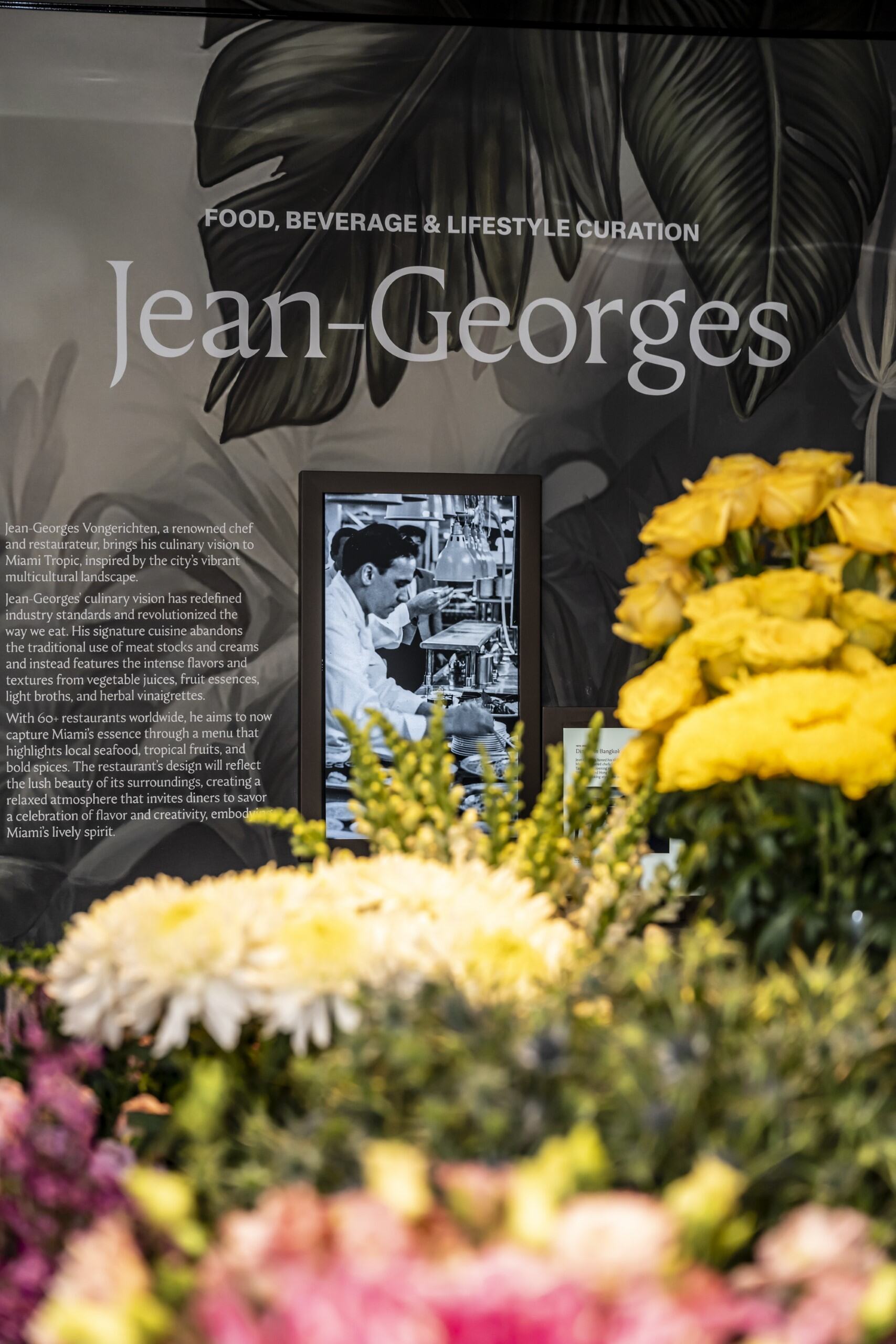Celebrating 200 Years: The Heritage of Maison Louis Vuitton
As Louis Vuitton celebrates a milestone birthday today, Haute Living takes a look back at the heritage of the luxury fashion house and how Louis Vuitton built such an iconic, timeless name.
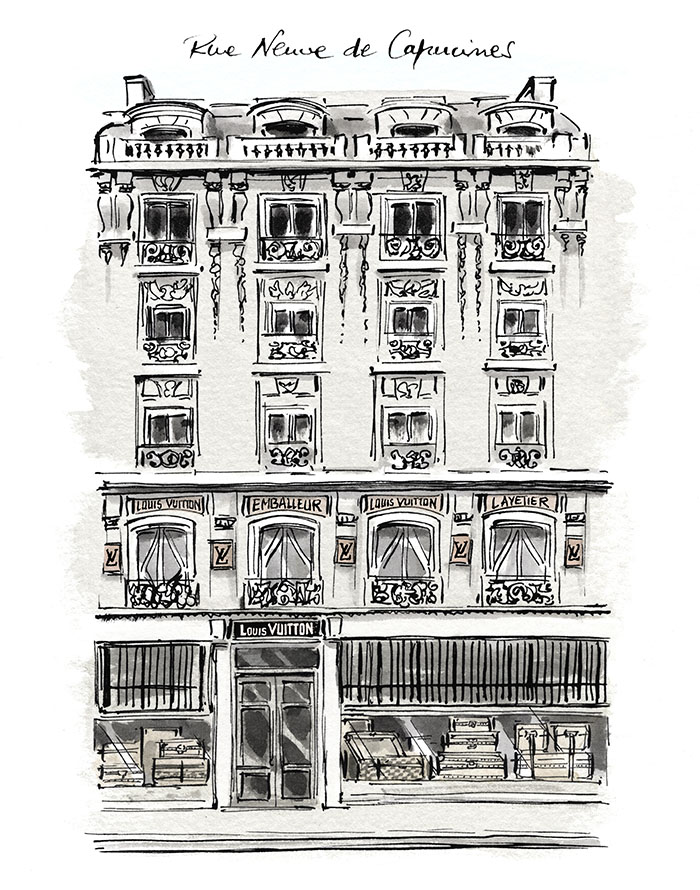 Photo Credit: Courtesy of Louis Vuitton
Photo Credit: Courtesy of Louis Vuitton
Come August 4, French fashion house Louis Vuitton will celebrate its 200th birthday, warranting a commemoration. The luxury brand has spent the last two centuries defining what it means to be a modern fashion house without losing sight of its inherent design DNA. Indeed, Louis Vuitton’s most famed design motifs, such as the LV logo, Monogram canvas and Damier Ebène, have stood the test of time, eternal classics that are continually adapting to the current style. Since 1854, Louis Vuitton has perceived the world of fashion through an innovative lens that honors the finest quality and the intricacy of details in each piece.
Today, Louis Vuitton is one of the world’s leading luxury houses, with a presence in 50 countries, over 460 stores, and countless runways and presentations. It has opened its doors to architects, artists and designers across the years, all while developing a range of diverse offerings such as ready-to-wear, shoes, accessories, watches, jewelry and fragrance. Over time, the house has also become notorious for debuting beloved handbag collections like the Neverfull, the Speedy, the Pochette and the Dauphine, which have not only become wardrobe essentials but also an integral part of the fashion vernacular. These products and motifs that have come to define the house are a true testament to Louis Vuitton’s commitment to craftsmanship. But most important, the house has shown unwavering faith in the spirit and creativity of its founder, Louis Vuitton, for the last 200 years—and that is the secret behind the its legacy.
It is often said one must look back to catapult forward. It’s crucial to look back at the foundations from which strong traditions stem to reflect, understand and ultimately move onward, and in honor of Louis Vuitton’s 200th birthday celebration, Haute Living is looking back to the legends that started it all.
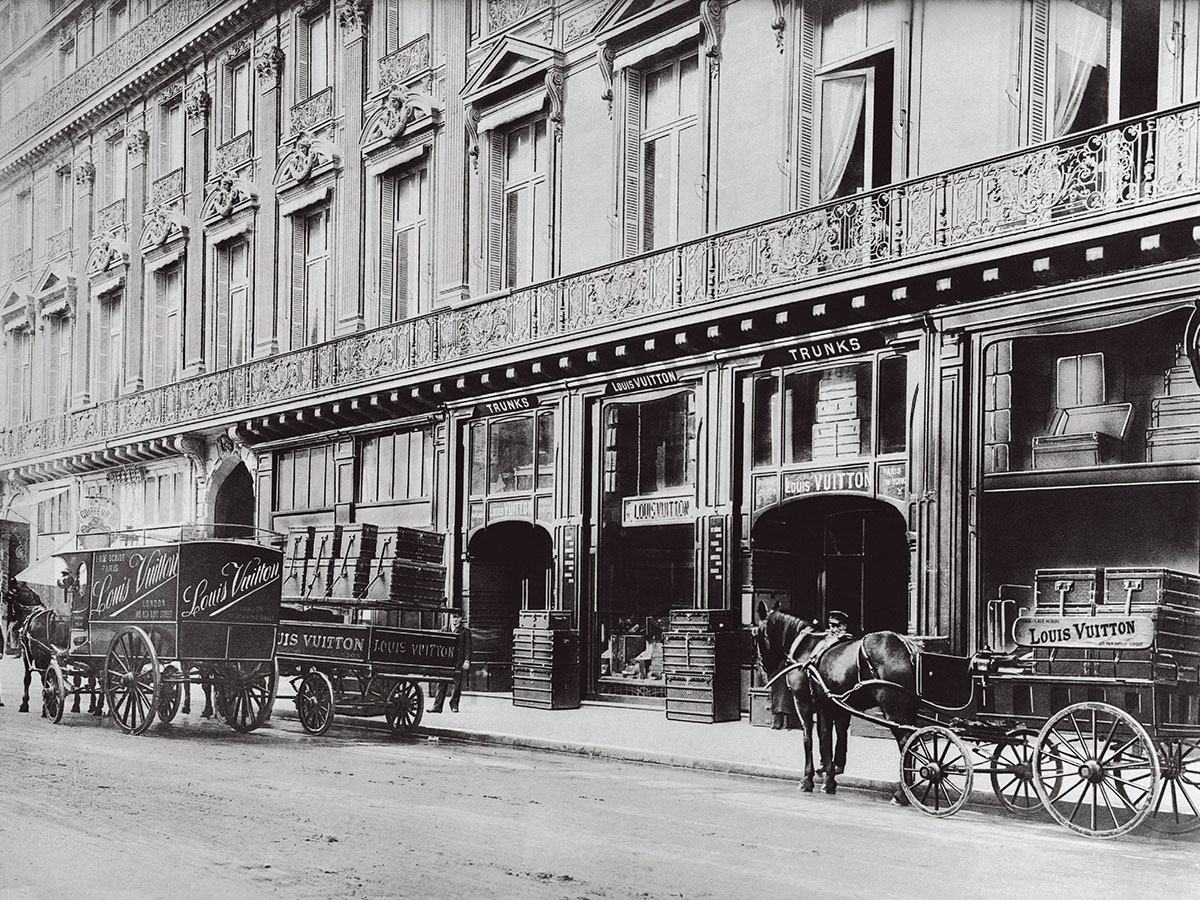 Photo Credit: ARCHIVES LOUIS VUITTON MALLETIER
Photo Credit: ARCHIVES LOUIS VUITTON MALLETIER
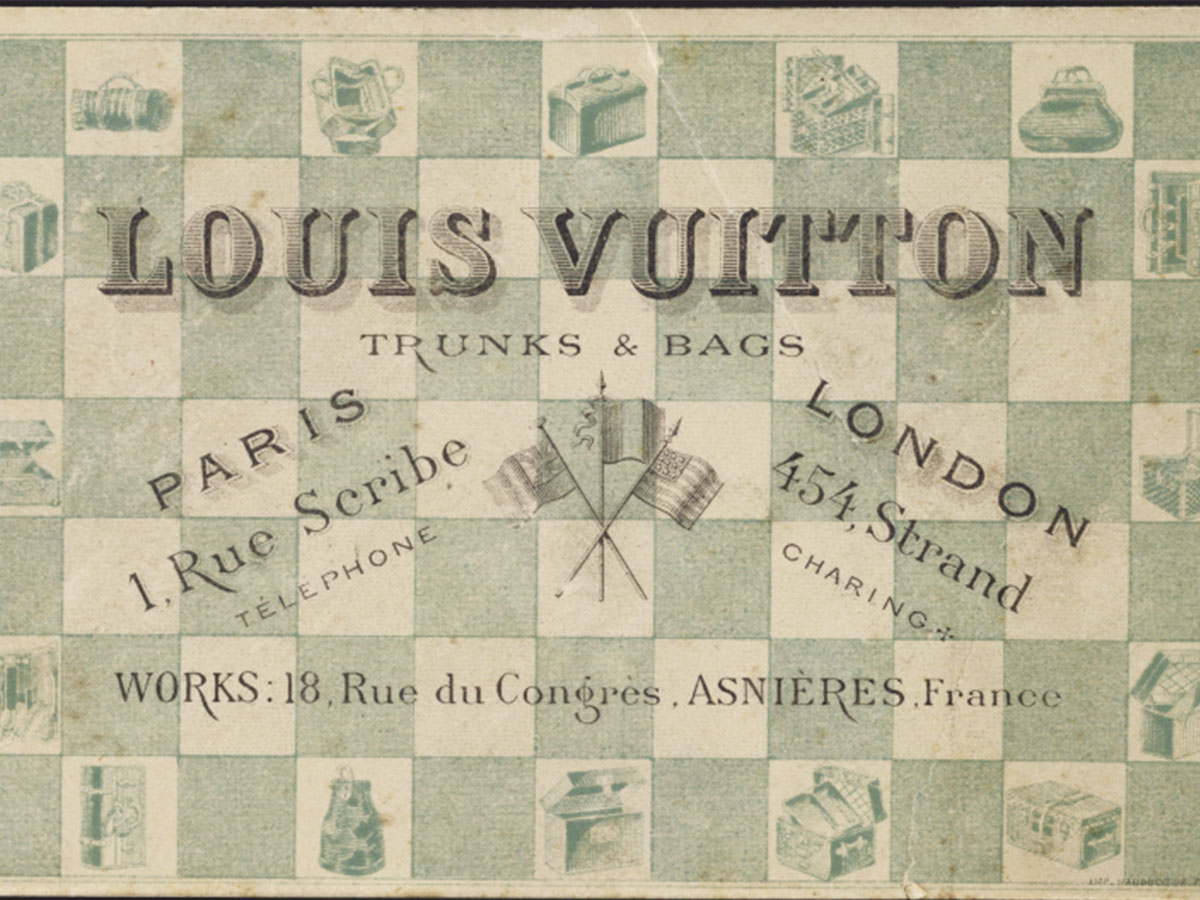
Photo Credit: ARCHIVES LOUIS VUITTON MALLETIER
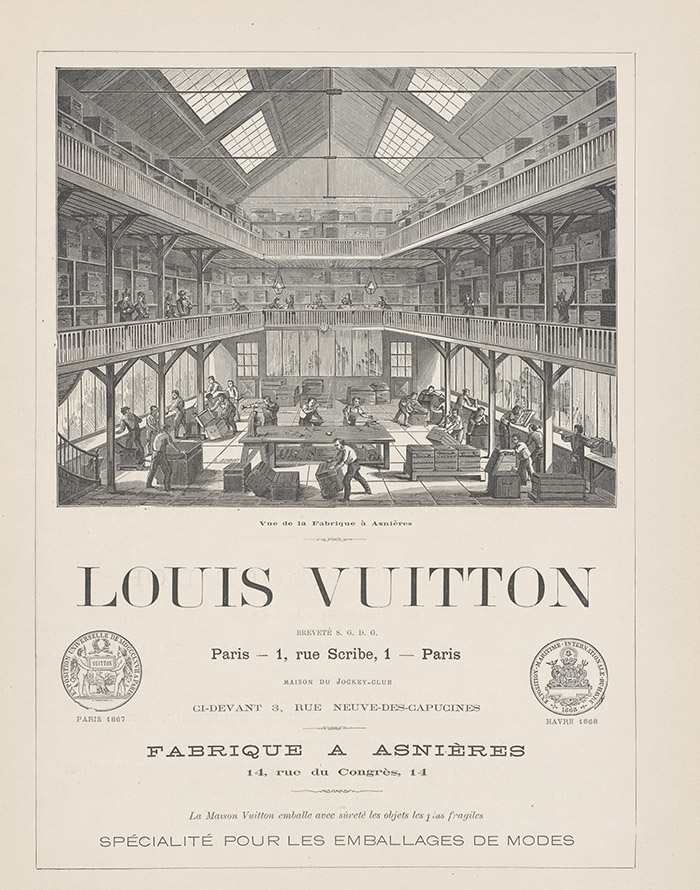
Photo Credit: L. Guiguet.
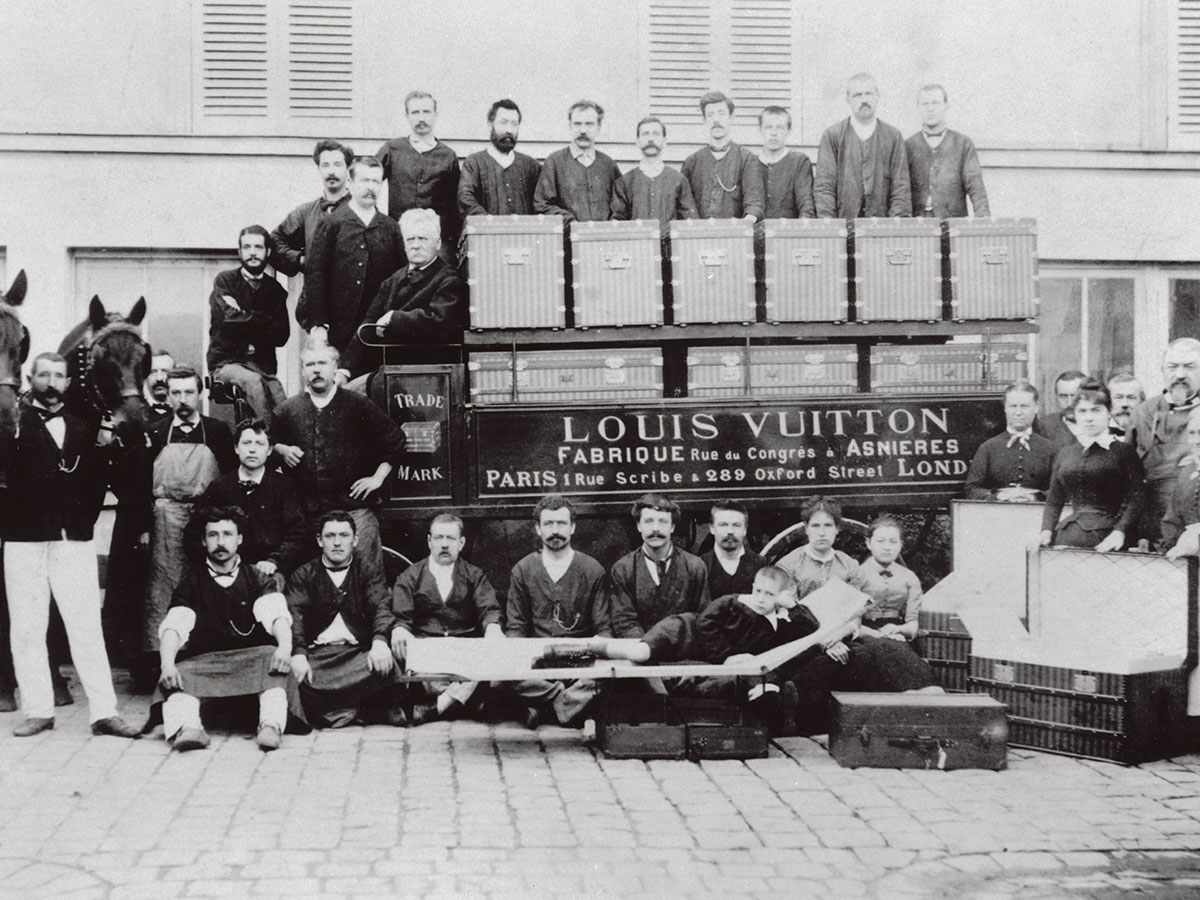
Photo Credit: Courtesy of Louis Vuitton
THE MAN WHO INVENTED THE ART OF TRAVEL

Photo Credit: Courtesy of Louis Vuitton
Louis Vuitton was destined to be a creative genius. He left home at 13 with carpentry skills and eventually landed in Paris, where he was apprenticed to the renowned trunk master and packer Romain Marechal. In the 1830s, it was common for trunk masters and packers to pack items for clients as they began their travels, which creatively challenged the craftsmen to design exclusive custom items.
It was at the Parisian atelier of Monsieur Maréchal that Vuitton found his calling — and eventually, his name — in the artisanal industry. Suddenly, the young boy was at the helm of a rapidly evolving social, political and economic culture, and it ultimately paved the way for his future. Vuitton spent 17 years perfecting the intricacies of the specialized trade of custom boxes and trunks before he founded his own maison.
In 1854, a remarkable year for the brand, Vuitton opened his own workshop on the rue Neuve-des-Capucines, in the heart of Place Vendome — a neighborhood all the major fashion houses would establish as their home during the next several decades. Here, Vuitton immersed himself in an elevated world of style; he grew close with Charles Frederick Worth, the founder of Parisian Haute Couture, who was later appointed trunk-maker to Empress Eugénie de Montijo, wife of Napoleon III. There was a revolution taking place in transport, and Vuitton was quick to understand — and invent — the significance of the “art of travel” through carrying luggage, bags and accessories that were es elegant as they were practical.
As a visionary artist and clever inventor, Vuitton redefined fashion packing by introducing new, sleek silhouettes and the adaptation of materials to the object’s function. His vision, one-of-a-kind attention to detail and ability to constantly modernize how people travel set the house apart from the competition. By the late 19th century, the house of Louis Vuitton had reached international fame, which led to the first store opening outside of France, in London, foreshadowing the massive expansion and admiration the house would continue to inspire.
INSIDE ASNIÈRES, THE HEART OF LOUIS VUITTON

Photo Credit: Tommaso Sartori
Because of his burgeoning success, Vuitton needed to expand his headquarters just shy of five years after founding his house. In 1859, he opened the atelier in Asnières, right outside the city center on the banks of the Seine. Another monumental moment for the brand, Asnières allowed for seamless delivery of the precious raw materials required for the Vuitton trunks by giving it access to the Seine and one of the first railway lines in France.
Designed in the futuristic Eiffel style of the time, the vibrant, airy interior was a stark contrast from the typically dark, mundane workshops of Paris. Asnières became the heart of the house’s savoir-faire and at one point was the Vuitton family residence. The Vuitton children played in the garden, rowed on the nearby river and learned the family trade in the workshops before entering into the business.
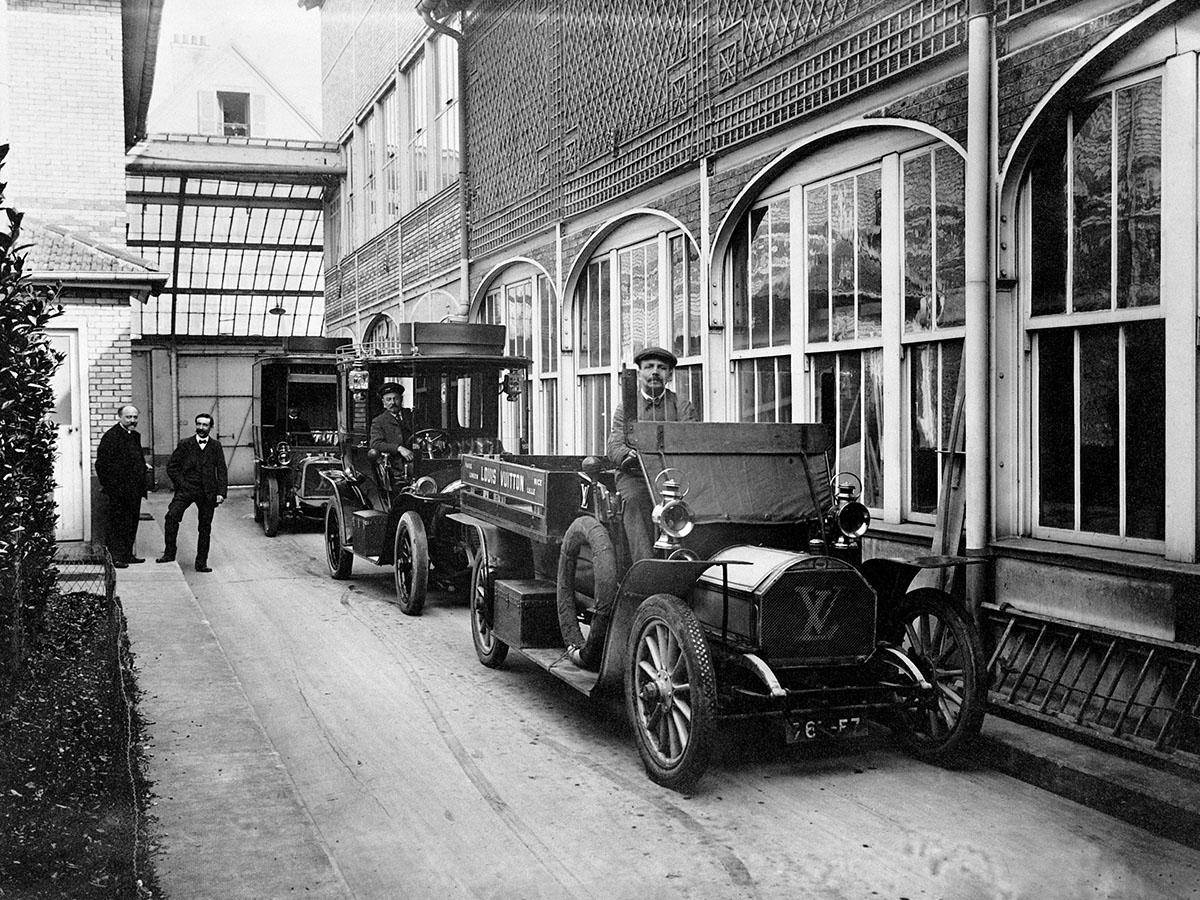 Photo Credit: Courtesy of Louis Vuitton
Photo Credit: Courtesy of Louis Vuitton 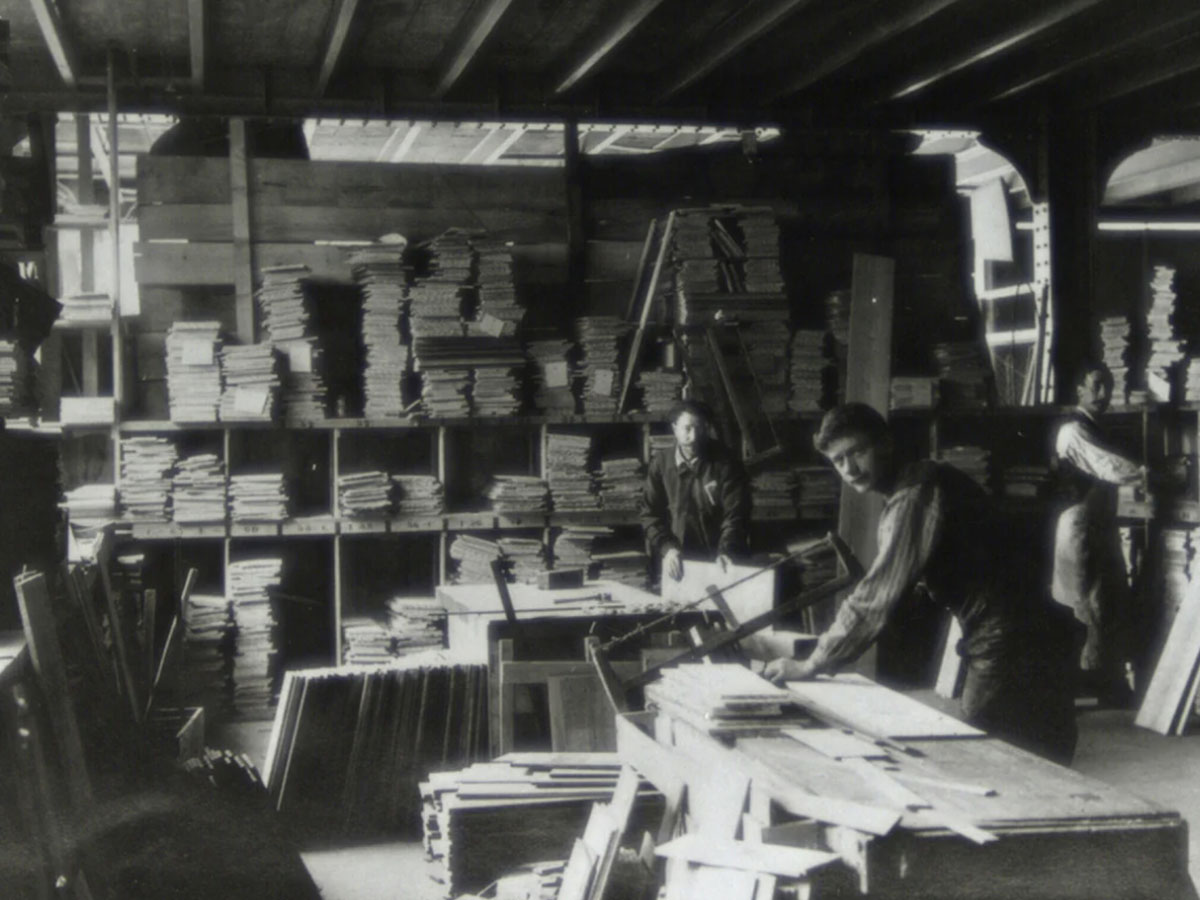 Photo Credit: Courtesy of Louis Vuitton
Photo Credit: Courtesy of Louis Vuitton
Remaining authentic to the brand’s devotion to its heritage, the Asnières is still where the signature leather goods and special orders are designed and crafted today. From a classic flat trunk to a bespoke carrier for digital recording equipment, creations here span past, present and future with the same incredible detail mastered by the artisans familiar to Louis Vuitton himself: the careful applying of glue to Monogram canvas in order to stretch it across the wood structure’ nailing the rigid lozine to the edges and corners of a trunk to ensure solidity; the malletage, or delicate crisscrossing of tape inside the trunk lid. Today, the Asnières workshops — which are also an exhibition for guests — are imbued with the same energy that Vuitton himself once instilled in his luxury empire.
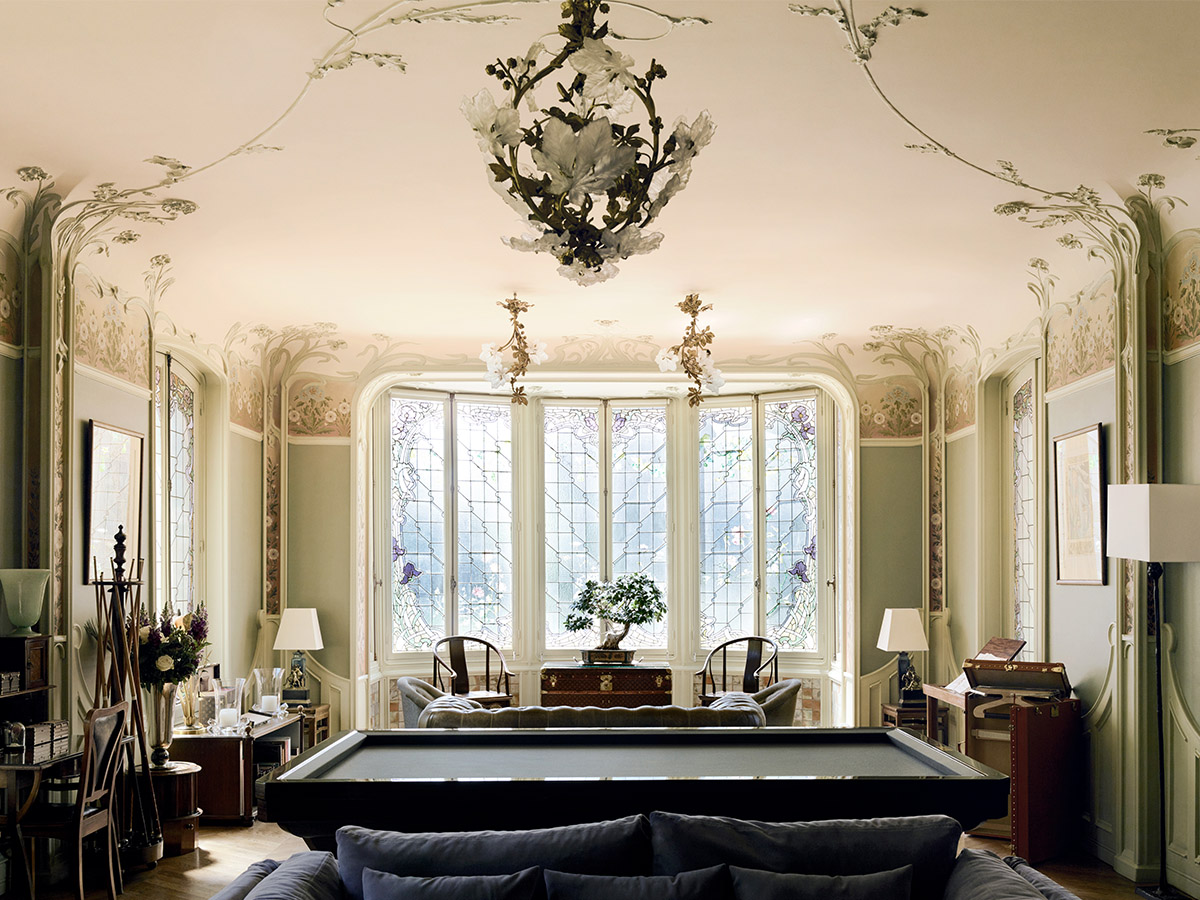
Photo Credit: Tommaso Sartori
THE EVOLUTION OF THE ICONIC TRUNK
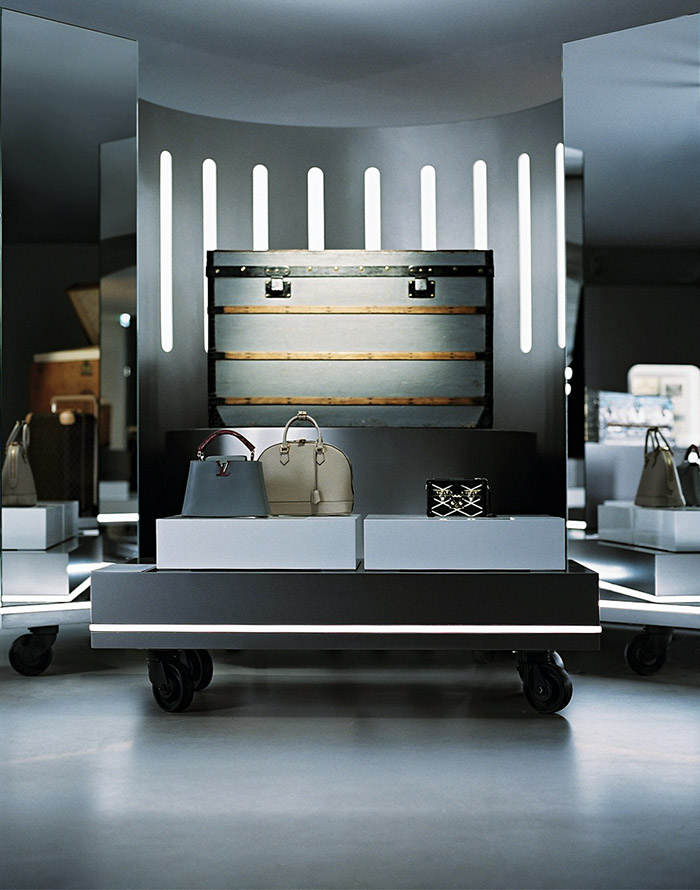
Photo Credit: Crista Leonard
It should come as no surprise that the item that put Louis Vuitton on the map remains a best-seller today, evolving far beyond the founding of the company. From the beginning, Vuitton pronounced himself a “packer” of fashions: the 1850s were an era of opulent dresses, crinolines and wide skirts, requiring ingenious containers and skilled hands to pack and transport — à la Vuitton. Toward the end of the 1850s, he created Gris Trianon, a coated canvas that made luggage waterproof and drastically transformed the silhouette of the trunk by giving it a flat lid. This “flat” trunk was stackable — unlike the classic domed design — and it completely changed the way people traveled. It looked great, too: The iconic trunk proved that traveling could be both practical and aesthetically pleasing.
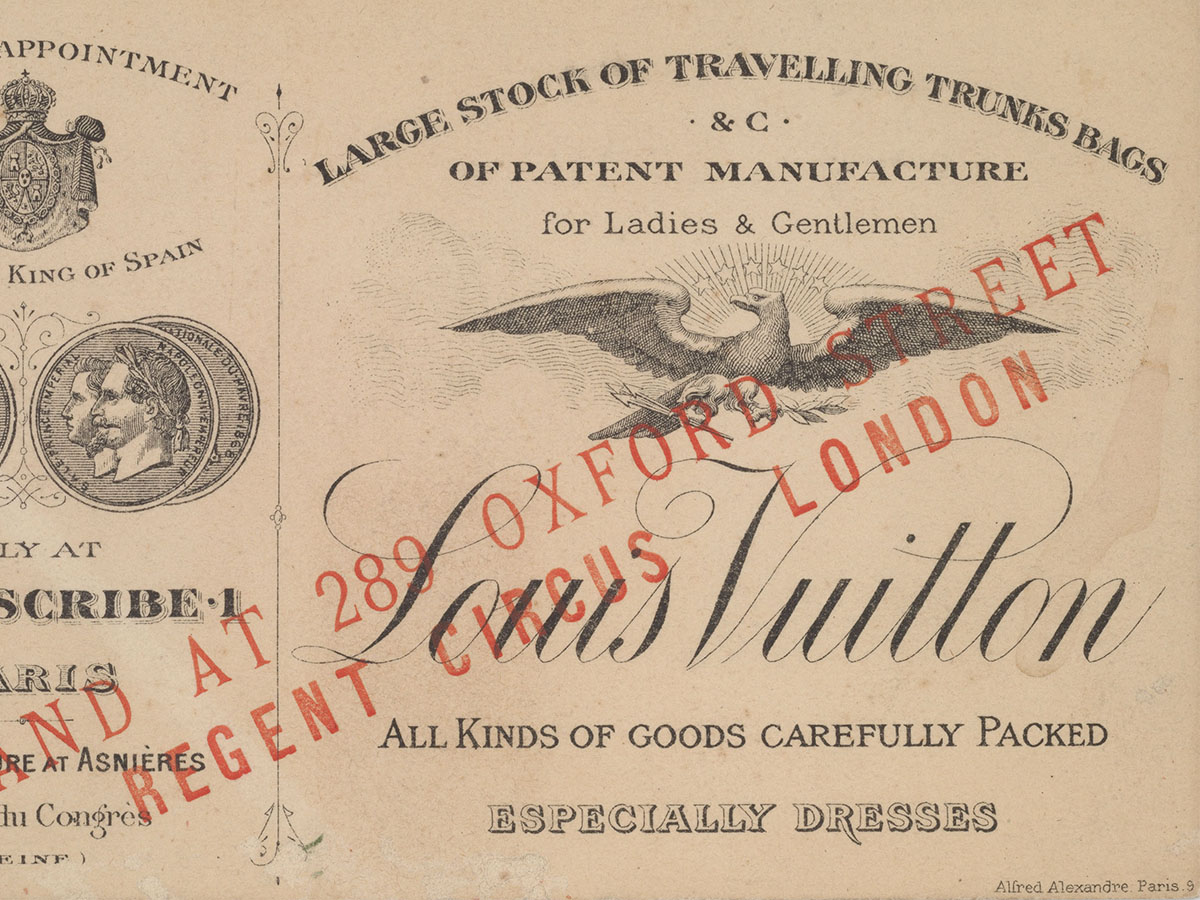
Photo Credit: ARCHIVES LOUIS VUITTON MALLETIER
As rival manufacturers began to copy his innovations, Vuitton opted for increasingly complex designs, migrating from gray cloth to colored stripes and later to a checked design known as the Damier. Then, in 1896, everything changed. His eldest son, Georges-Louis Vuitton, created the Monogram in honor of his late father, and a true icon was born. A symbol that is just as revolutionary today as it was then, the interlaced initials, encircled rounded flower, and four-petal flower encased in a concaved diamond — the legendary Monogram canvas — became one of the first successful exercises in luxury branding.
As an industry thought-leader, Louis Vuitton won numerous prizes at the World Fairs held in Paris in the late 19th and early 20th centuries, awarding the finest advances in craftsmanship and technology — values that will forever be woven into the brand’s DNA.
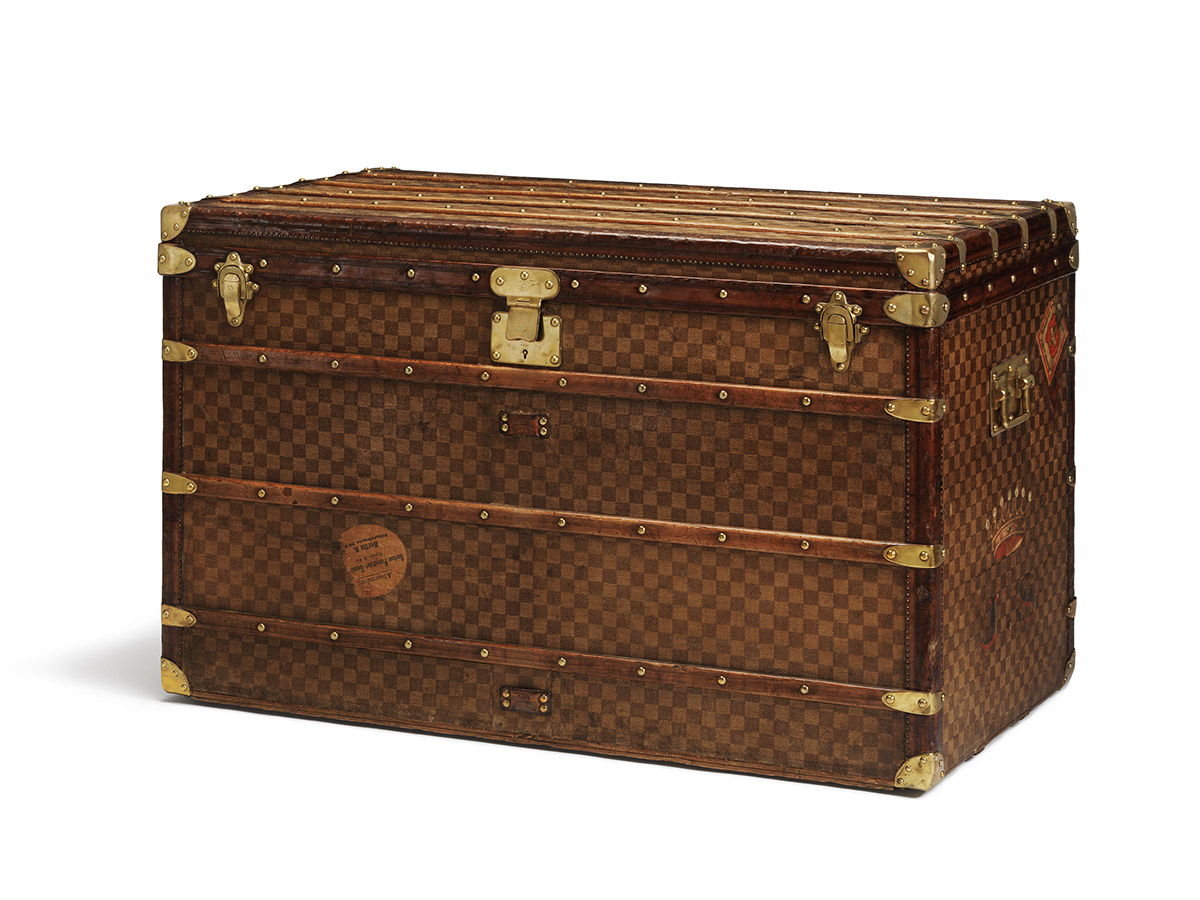 Photo Credit: ARCHIVES LOUIS VUITTON MALLETIER
Photo Credit: ARCHIVES LOUIS VUITTON MALLETIER  Photo Credit: ARCHIVES LOUIS VUITTON MALLETIER
Photo Credit: ARCHIVES LOUIS VUITTON MALLETIER
Since the first trunk, Louis Vuitton has designed many iterations, from older versions like the Bed Trunk, Library Trunk, Wardrobe Trunk and Shoe Trunk to more contemporary styles like the Malle Coiffeuse, DJ Trunk and LV Speakers — all paying homage to the house’s heritage.

Photo Credit: Courtesy of Louis Vuitton
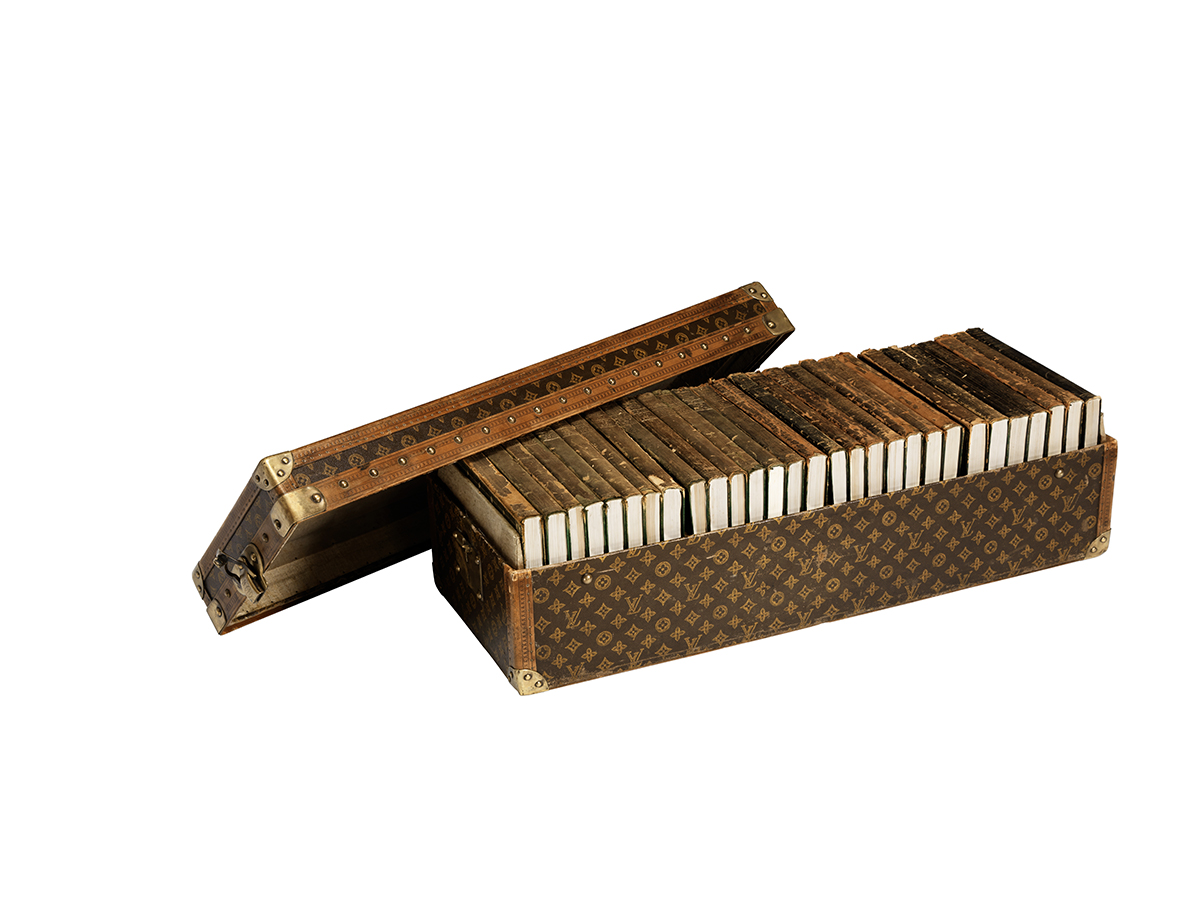
Photo Credit: Courtesy of Louis Vuitton
A HOUSE OF HERITAGE
The history and heritage of the House of Louis Vuitton is one that cannot be matched and that will undoubtedly continue to modernize the luxury industry beyond its 200th birthday. From the early discovery of Vuitton’s passion and the making of the iconic LV trunks to the memories that linger in Asnières, Louis Vuitton’s past fuels the heart and the soul of the brand today.
This fall, Louis Vuitton will launch a series of initiatives in celebration of the 200th birthday—Louis 200— including a video game with embedded NFTs; store windows that showcase the iconic trunk as a vessel reimagined by 200 exceptional contributors; a large-scale triptych of Louis painted by Alex Katz; a fictionalised novel by French writer Caroline Bongrand about the life and intentions of Louis, published by Gallimard, as well as Looking for Louis, an unprecedented documentary that retraces the story of the young pioneer.

Photo Credit: Courtesy of Louis Vuitton
“Owing to the pioneering spirit of Louis, innovation defines the history of Louis Vuitton and perpetually advances us into the future,” says Louis Vuitton’s Chairman and CEO Michael Burke. “Through the disruptive and dynamic initiatives of Louis 200, we can appreciate how Louis is a figure of his time – and of ours.”




